-
•
•
49 responses
It is my nature to be cynical and critical and to focus on flaws, so when I tell you that the General Women’s Meeting was nearly perfect, that’s really saying something. Read More
-
•
•
40 responses
At last night’s Stake Leadership Training Meeting, the stake president announced the first two speakers, both bishops. The second was assigned the topic “the unwritten order of things.” Hard to think of a topic more likely to spin out of control — I braced for the worst, and prepared myself for the upcoming train wreck by Googling up a copy of Elder Packer’s actual remarks at the 1996 BYU devotional and (#3 on the Google search) Julie’s 2009 post “The Problem with the Unwritten Order of Things” and the 103 spirited comments to that post. Read More
-
•
•
8 responses
Having heard nice things about the odd little book by Pierre Bayard How to Talk About Books You Haven’t Read (ht: someone out there), I finally found it. And read it. Summary: You read a very, very small slice of all published books. You forget most of what you read, so you retain only a small part of the few books you actually read. Worse yet, you bend and twist what you do remember to fit your own personal matrix of ideas and experiences. So what is in your head after reading a book, even more so for a book… Read More
-
•
•
86 responses
It’s not surprising that the First Vision has become one of the faith issues that gets kicked around the Internet these days. Visions are personal experiences of one particular person, so little effort or justification is needed for a third party to doubt or disbelieve another’s account of a vision. Most Mormons find it easy enough ignore or reject visions recounted in other Christian traditions without much reflection. As Steven C. Harper notes, “It is vital to recognize that only Joseph Smith knows whether he experienced a vision in 1820. He was the only witness to what happened and therefore… Read More
-
•
•
3 responses
The Summer 2014 print issue of Dialogue arrived in my mailbox last week. Among other fine articles is a ten-year look back at Mormon blogging by Dialogue Web Editor Emily Jensen. The article consists of about 70 paragraph-length quotations from selected Bloggernacle posts over the years, in ten categories: theology, homosexuality, feminism, race, Mormon studies, public conversations, history, Dialogue, personal essays, and miscellaneous. The Dialogue website adds a few supplementary blog posts that did not make the print article, but to get the print article itself you will need to subscribe. Below are links to the T&S posts that appeared… Read More
-
•
•
17 responses
Elder David A. Bednar just delivered a talk on social media at BYU Education Week. The text of the talk is already posted at LDS.org (video also available). You are probably going to be hearing about this one so you’d better go read it. Here are the highlights. Quotations in the italicized blockquotes; my commentary in plain text following the quote. Read More
-
•
•
101 responses

It has always been the case that some missionaries “come home early,” as the gentle phrasing goes. It turns out that more missionaries are coming home early than ever before. The percentage is now into the double-digits, and it turns out the folks in Salt Lake City are already well aware that we have a problem. This is based on information quietly passed down the priesthood chain, coupled with an urgent request to extend support and guidance to our young men and women as they prepare for and depart on LDS missions. So the leadership recognizes there is a problem… Read More
-
•
•
One response
Thomas B. Griffith (D.C. Circuit Court judge and former BYU General Counsel, Senate Legal Counsel, Bishop and Stake President) is teaching an institute class at the Chevy Chase building this fall on early Church history, with a focus on “Joseph Smith as Everyman.” The class starts Tuesday, September 2nd at 7pm and will run every Tuesday night throughout the fall. You can register either upon arrival or in advance at the Church’s Institute site. Please spread the word. Brother Griffith is a fantastic teacher and having a class from him on this topic is a rare opportunity — it is sure to be stellar. Read More
-
•
•
11 responses
Below is the agenda for Day 2 of the FAIR Conference in Provo with brief bios of the speakers. I will be adding summaries of some of the sessions as the day goes by. (Disclaimer: these are on-the-fly summaries for general information and discussion. Please consult audio recordings or the transcripts that FAIR releases in a week or two for accurate details.) Full bios are available at the speakers page. You can get online streaming of the conference sessions. Read More
-
•
•
7 responses

Well, a billion years of geological history and a couple hundred years of Mormon history. That’s what I saw last month on a rafting trip down the Colorado River through the Grand Canyon. But not everyone sees the same thing. Read More
-
•
•
61 responses

These children, fleeing death and devastation, have come to us. Yes, caring for them will cost us time and money and effort, but not caring for them will cost us our compassion. Read More
-
•
•
The Teachings of Joseph Fielding Smith lesson 17 covers “Sealing Power and Temple Blessings,” the ordinances restored through the priesthood which lead to our salvation, for salvation in the eternal kingdom is dependent on sealing, both to parents, to spouse and to children. The following poems addresses the role of sealing in our understanding of priesthood and of salvation. Read More
-
•
•
Lesson 31 of the Old Testament Gospel Doctrine manual covers the wisdom literature of the Old Testament, Proverbs and Ecclesiastes, which consist mainly of short statements meant to help guide our behavior. But its pretty easy to make these statements seem contradictory. We all agree that “pride goeth before destruction,” but what if it is pride in our work or in doing our best? And what do we say to parents who have “trained up a child in the way he should go” when that child does depart from the way? It is precisely these contradictions that the following poem… Read More
-
•
•
One response
What benefit do we get from the temple? Old Testament Gospel Doctrine Lesson #30 covers two renewals of the temple in ancient Israel; that of Hezekaih and that of his great grandson, Josiah. It also gives the example of Hezekiah’s fending off the Assyrians with the help of the angel of the Lord following his cleansing of the temple. This apparently comes because of his righteousness. Could it be the indirect result of cleansing the temple? Does the temple lend us strength? The following sonnet sees strength in the temple, comparing its outward appearance with the inward strength it gives… Read More
-
•
•
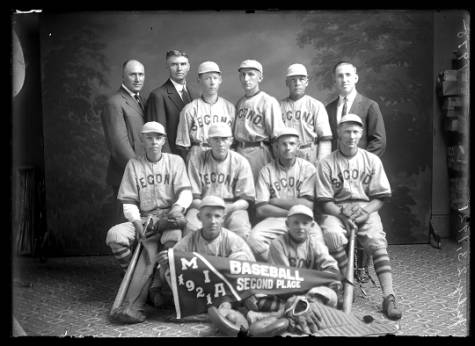
In the late 16th century Henry IV of France expressed a desire that everyone in his realm would “have a chicken in his pot every Sunday.” That idea showed up again in Herbert Hoover’s promise of a “chicken in every pot”—the politician’s promise of prosperity. I’m not sure whether “a baseball team in every ward” is a promise of prosperity or programming gone awry, but that is essentially what leaders of the MIA suggested in 1922—some years before Hoover made his ill-fated promise. They wrote: “Each ward should have an organized baseball club, and each stake should have an organized… Read More
-
•
•
73 responses
People are still trying to digest the consequences of the Kate Kelly trial. Just today FMH posted dozens of reports showing how arbitrary the LDS disciplinary process can be and Exponent posted on the feasibility of bringing some level of informed consent to the worthiness interview process. At T&S, we have recently posted and discussed in comments shortcomings of the Kelly trial and problems with apostasy trials in general. Let’s take a step back and ask a more general and hopefully less contentious question: Has the Church outgrown the lay leadership model? Are there any practical alternatives? Read More
-
•
•
4 responses
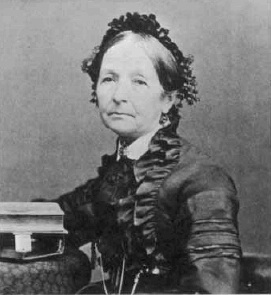
There are at least two potential problems when there is a leadership transition—the transition plan or procedure isn’t always known ahead of time, and those involved don’t always follow the plan or procedures. Mormonism’s initial experience with transition didn’t go well—I suspect for both reasons—and the transitions elsewhere in the scriptures often seem unexpected also. For example, the transition from Elijah to Elisha described in Old Testament Gospel Doctrine lesson #29 is unexpected by the Israelites, who search for Elijah for three days after Elisha succeeds him. It is, of course, Mormonism’s difficult initial transition, following the death of Joseph… Read More
-
•
•
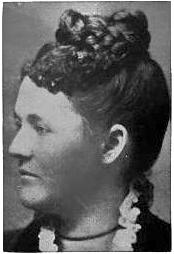
Parenting sometimes seems like a Mormon obsession. We believe it has a significant effect on the success of children both in this life and in the life to come, so it is often the subject of Mormon sermons and lessons, such as chapter 16 of the Joseph Fielding Smith manual. We often find inspiration for how to handle parenting issues in Mormon teachings about the nature of our Heavenly Father and our relationship to him. Mormons assume and rely on the idea that our relationship to our Heavenly Father is similar to our relationship with our earthly parents. This assumption… Read More
-
•
•
One response
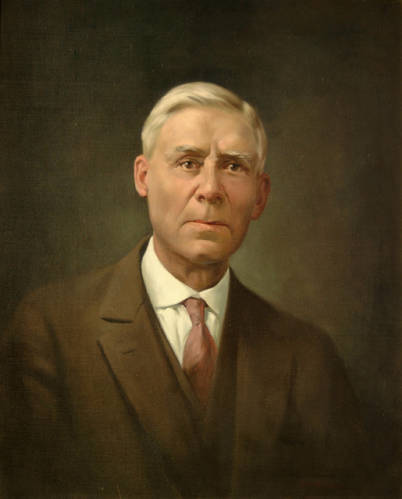
The story of Elijah listening for the voice of the Lord (1 Kings 19:9-13) is frequently used by Mormons to describe the manner we can receive revelation. Old Testament Gospel Doctrine lesson #28 includes that story, along with others discussing Elijah’s acts as prophet, but focusing on his listening to the Lord to accomplish those acts. While it is undeniably important for a prophet like Elijah to listen to the still small voice, in latter days Mormons emphasize that all people should receive revelation, an idea that is found in the following poem. Read More
-
•
•
27 responses
I am so thankful that we are gently backing away from a literal understanding of scripture. Read More
-
•
•
6 responses
While the marriage practiced in the Church and taught in chapter 15 of the Joseph Fielding Smith manual is different than that taught and practiced outside of the Temple and the Church, still the underlying commitment to marriage and many of the promises made are very similar. Even after the Church under Joseph Smith introduced celestial marriage in the 1840s, the protestant views of marriage common in the U.S. still resonated for Mormons (as they do today) In fact, the following non-Mormon poem about marriage was published in the Nauvoo Mormon newspaper The Wasp on the last day of April… Read More
-
•
•
It seems likely that today we (in most western democracies) aren’t influenced by leaders the same way that the children of Israel were by their kings (at least as described in Old Testament Gospel Doctrine lesson #27). I suspect that all else being equal, democracy reduces the influence of individual leaders. Still, the example of the influence of their rulers, for good or evil, is instructive today. And the following poem highlights the qualifications of leaders and how their influence is felt by those that they lead. Read More
-
•
•
71 responses
The Council of the First Presidency and Quorum of the Twelve Apostles released a short three-paragraph statement on Saturday June 28, 2014, posted at the Office of the First Presidency page at LDS.org. It seems like a helpful and timely statement responding to issues raised in the wake of Kate Kelly’s excommunication on June 23, 2014. In particular: Read More
-
•
•
14 responses
The latest move by the Church on the environmental front is the production of a beautiful, 94 second spot on the Mormon Channel. Read More
-
•
•
12 responses
We are pleased to post the last installment of our Q&A with Armand Mauss, LDS author and scholar. See Part 1 for a full introduction and the first set of questions and answers, and Part 2 for the second set. 9. In the third chapter of your recent book Shifting Borders and a Tattered Passport, you discuss how as a graduate student you encountered the theory “that truth or reality is socially constructed,” which you contrasted with an “absolutist or essentialist ontology” that you had developed as a young Latter-day Saint. At the end of the chapter, you reflected back… Read More
-
•
•
100 responses
On Tuesday, Ally Isom, Senior Manager of Public Affairs with the LDS Church, encouraged listeners to have respectful conversations about their concerns with and faith in the Church. Read More
-
•
•
22 responses

Isabelle Collin Dufresne, known as Ultra Violet, died this morning after a battle with cancer. She was 78. Dufresne was perhaps the most famous Mormon artist that most Mormons haven’t heard of. But at the height of the Pop Art movement and Andy Warhol’s Factory, Ultra Violet was well known in the New York art scene, and she is still well remembered for her memoir of that time, Famous For 15 Minutes: My Years with Andy Warhol. Read More
-
•
•
51 responses
Do you ever read the bits of scripture that are excluded from our Sunday School lesson manuals? If you are only looking up certain passages, it is as though the rest of the text doesn’t exist. Read More
-
•
•
6 responses
From Socrates in Athens to Galileo in Rome to John Scopes in a small town in Tennessee, trials make great drama. So it is not surprising that LDS disciplinary proceedings, essentially mini-trials, get so much attention, especially in the age of blogs and Facebook. I shared my thoughts on the topic three years ago in Church Discipline in the Internet Age. This post takes a different approach. Ever heard of Mars Hill Church? Read More
-
•
•
4 responses
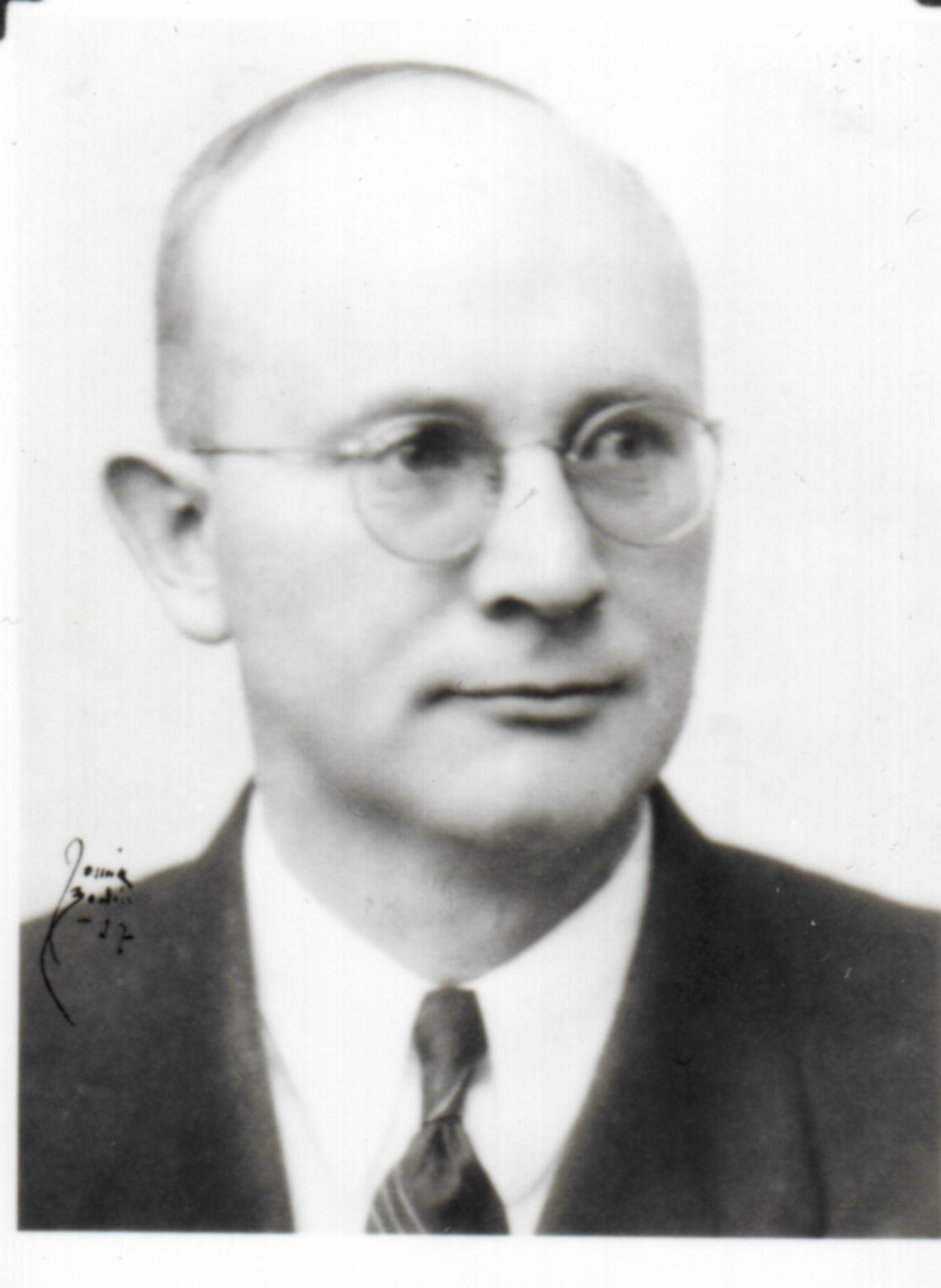
The restoration of priesthood keys is a vital part of LDS teachings, something that is emphasized repeatedly in lesson manuals, such as chapter 11 in the current Joseph Fielding Smith manual. It is also one of the most emphasized elements of the lessons taught by LDS missionaries. So it is no surprise to find the restoration of priesthood keys as a central element in the following poem, composed by a young LDS missionary in 1922. Read More
